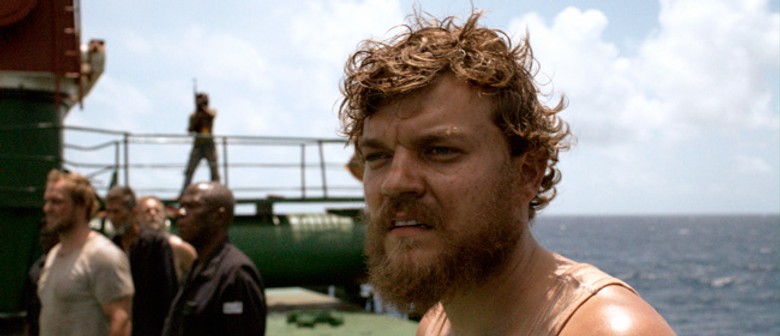In many companies across thousands of industries, the lives of those on the bottom are so far flung from those at the top it can seem unbelievable that these two groups of ‘employees’ are tied together under one banner. This is never more apparent than in A Hijacking as the cold, corporate boardroom is weighed against the sweaty hold of a ship in the Indian Ocean.
A Hijacking essentially does what it says on the tin: a cargo ship (MV Rozen) heading for India is seized by pirates who begin to bargain with the CEO of the company for a hefty ransom to ensure the crew’s safety. Having said this, it’s not a simple story of heroics, anguish and cruelty; which explains why most of the crew (weaponless) aren’t all killed.
Written and directed by Tobias Lindholm, this film takes a magnifying glass to the subject of hostage situations, watching the characters squirm in the intensity of the circumstances as the audience studies the human condition under such duress. The subdued, simmering tension is absorbing; it’s not edge-of-your-seat, nail-biting cinema, but harbours the ever-present, underlying and unpredictable type of tension, which can be worse. Lindholm presents the concept of capture in a would-be documentary format that forces audiences to actually ask ‘what would I do?’ and relates that conflict and angst.
The somber tone of the film in carried by the relatable and reserved characters with a realistic lack of valor. The film moves between the boat, the boardroom and the central character is Mikkel, the ships cook. He is a good father, loving husband and loyal employee, and fearing for his life tries desperately to appease the pirates as they bark untranslatable orders and press machine guns against his back. Mikkel is the demasculinised character that many would be in a similar situation; clinging to the hope of freedom through fear, despair and horrific circumstances, all whilst trying to avoid death.
Poignantly, Peter the CEO of the company reflects the ‘lost at sea’ attitude as most of his days and nights are spent isolated in the small boardroom. He haggles the cost of the men’s lives, whilst delivering the desired result to the company: keeping within the margins to complete the process as quickly as possible. Unlike Mikkel who commands sympathy, Peter’s professional attitude portrays him as cold, uncaring and holding higher regard for profit than human life. However, Peter feels a sense of duty and moral obligation to bring ‘his’ men home safely, insisting to do the negotiations with the pirates directly instead of using an outside party as advised.
Omar is the negotiator who also apparently finds himself at the mercy of the pirates, a fascinating character wedged between many worlds and rules. As a contractor, Omar, like the captives, is unable to leave until the deal is done, which increases the pressure on Peter. He is also - like Peter - a businessman and professional working to profit margins and making business deals through haggling. Both Peter and Omar move the pieces (Mikkel) around like pawns as Omar insists that he is not a pirate or a villain, and Peter pretends his company doesn’t have billions to spare for a handful of lives.
The regular lack of subtitles when the pirates are talking, making demands or threatening is incredibly effective in driving home the terror in hostage situations to audiences without overly dramatising. The pirates however, feel flat and one-dimensional, appearing as archetypes. There is also a quality missing that makes it less ‘cinematic’ but perhaps it is the absence of a slight touch of Hollywood drama. There are few wide and establishing shots of the ocean and Denmark, as scenes only take place in two locations: the boat and the boardroom giving the film an insular, claustrophobic and TV mini-series feel.
Due to the slow pace, plot points and turns are predictable and expected, which tarnishes this little gem of a film. Realistically though, the negotiation process is tiresome and drawn-out, which is mirrored in the film with tedious procedures, phases and processes.
Overall this film is a great addition to the festival program, bringing to light the issues of hijacking, and humanising them beyond the news updates.
- Chelsea Denny




